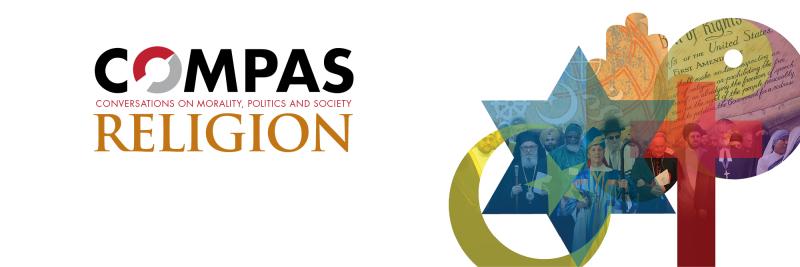COMPAS Colloquia

The Religion COMPAS program is putting together a number of "Colloquia" which involve individual speakers and small panels discussing the Religion theme. Check back to keep up to date on these and additional events!
Upcoming Colloquiua
April 12, 2018 - Science, Religion, and Democracy
3:30p - 5:00p
Thompson Library, 11th Floor
"What is religious belief, and what is its proper relationship to scientific inquiry? Do science and religion represent incommensurable worldviews? If so, then how can people relate to one another as fellow citizens across that divide? If not, then how can we pursue a more constructive dialogue between religious and non-religious people? Should secularism be the “default” position in public debate about scientific issues?"
Speakers:
- Philip Kitcher (John Dewey Professor of Philosophy at Columbia University)
- David C. Lahti (Associate Professor of Biology, Director of the Master's Program in Biology at Queens College, City University of New York)
April 16, 2018 - Christopher Carter - Food Pyramid Scheme
Past Colloquiua
October 10, 2017 - New Religions and American Law
- Hugh Urban (Comparative Studies & Center for the Study of Religion, Ohio State University)
- Spencer Dew (Religious Studies, Centenary College of Louisiana)
October 31, 2017 - Roadmap for A Shared Society: How Israeli Jews and Palestinians Can Live and Prosper Together
The Center for a Shared Society at Givat Haviva aims to build an inclusive, sustainable, thriving Israeli democracy based on mutual responsibility and civic equality. Its leading work has been recognized by the award of the UNESCO Prize for Peace Education. The speakers will discuss how they engage Israel's divided communities in collective action towards the advancement of a shared vision of the future. They will also consider how their model for developing equality and coexistence might be applied in other contexts of societies with deep historical, political and social rifts.
- Yaniv Sagee, Executive Director, Givat Haviva International
- Mohammad Darawshe, Director, Shared Society education department
November 6, 2017 - Frances FitzGerald, “Evangelicals: A new way to look at American history”
Abstract: Until the 20th century, religion was a great part of American intellectual life. It was deeply ingrained into the educational system from primary school to university. It was the stuff of philosophy and “natural science.” Only when universities adopted the German model of dividing scholarship into separate disciplines, and purging the supernatural from the natural was religion forced to retreat to the departments of theology. Today American history books and textbooks say so little about religion that students could believe we always lived in a secular society. That is hardly the case. For most of the 19th century evangelical Protestantism dominated American culture and society. My talk will be about how evangelicals influenced 19th century history, the split within the movement that led to the culture wars of the 20th century, and the future of evangelicals in 21st century politics.
The lecture will be followed by a panel discussion that will be moderated by Paul Beck (Political Science, Ohio State). The panelists will include Tim Ahrens (Senior Minister of First Congregational Church, UCC in downtown Columbus), and Rich Nathan (Senior Pastor of Vineyard Columbus).
This event is co-sponsored by Honors and Scholars.
February 26, 2018: Conscientious Objection in Medicine
3:30p - 5:00p
Thompson Library, Room 165
Do doctors and other health care professionals have a right to refuse to perform certain medical procedures, or to treat certain patients, based on their religious or moral beliefs? Should so-called “conscience laws” enabling them to do so be passed? These questions touch on some of the most sensitive areas of contemporary medicine, including end-of-life care, abortion and in vitro fertilization, contraception, and the treatment of LGBT persons. Join us for a conversation between two leading experts who take opposing sides on the issue.
- Abraham Nussbaum (Psychiatry, University of Colorado; Chief Education Officer, Denver Health)
- Ronit Y. Stahl (Medical Ethics & Health Policy, Perelman School of Medicine, University of Pennsylvania)
- Dana Howard (Center for Bioethics, Ohio State University)
